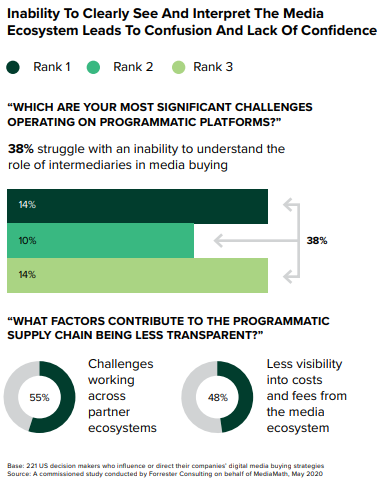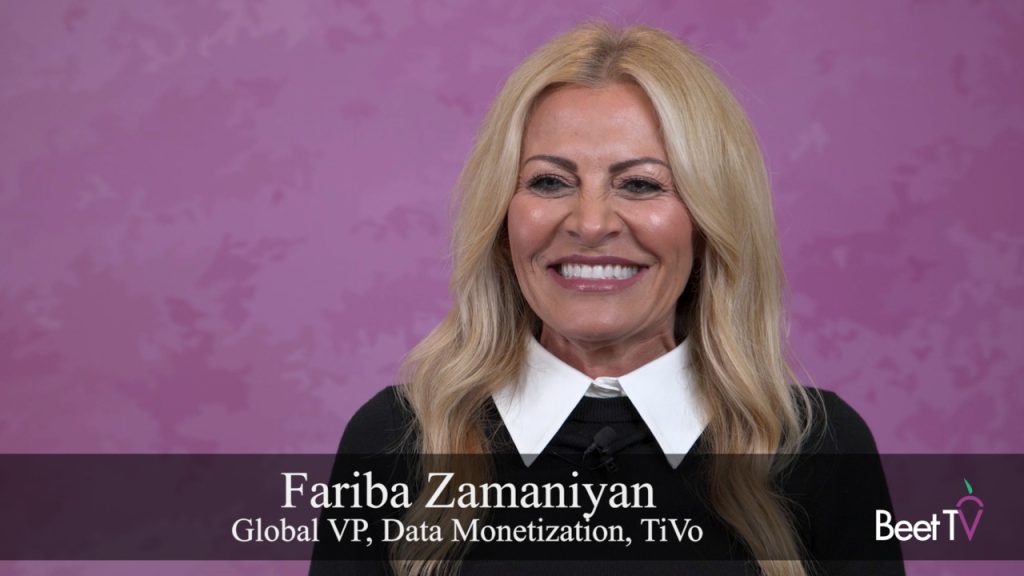Marketers are asking for better proof that their digital advertising is working, but many are frustrated with the programmatic marketplace that brings together buyers and sellers of media electronically. Accountability is a top priority for marketers who seek greater transparency into the supply chain that connects them with digital media outlets, a recent study found.
While 94% of marketing executives scrutinize their digital media budgets, only 33% said they can demonstrate a return on investment on their programmatic media spend with complete accuracy, a survey that adtech firm MediaMath commissioned from Forrester found. The difficulty in justifying their media spending limits the confidence of marketers, and interferes with their decision-making about key business objectives like boosting revenue and providing better service to customers.

“There’s so much good that’s associated with programmatic in being able to make much more intelligent, real-time, data-driven decisions,” Joanna O’Connell, vice president and principal analyst at Forrester, said in this interview with Beet.TV, “but the supply chain is complicated and messy and hard to penetrate and confusing for a lot of brands and their agencies.”
The programmatic market started with digital display advertising more than a decade ago, and currently makes up about 88% of spending, eMarketer estimated. The computerized buying and selling of advertising is expanding into other media outlets like online video, podcasting, connected TV, over-the-top channels and even linear TV.
‘Data-Sparse Environment’
Amid the shift toward programmatic, marketers face challenges as stricter privacy laws limit data sharing and technology companies like Apple and Google become more restrictive toward audience tracking methods. In addition, the three biggest digital advertising platforms in the U.S. — Google, Facebook and Amazon — are expanding as “walled gardens” with exclusive data about their audiences.
“This convergence of forces — privacy regulation, deprecation of third-party cookies and rise of walled gardens — creates a much more data-sparse environment for brands,” O’Connell said.
More than half (55%) of marketers think consumer privacy restricts the ability to reach the right audiences through programmatic ads, while 45% of marketers struggle to maintain scale while relying on third-party cookies for ad tracking, the MediaMath study found. Forrester surveyed 221 U.S. executives who either influence or direct digital media buying at their companies.
Despite the uncertainties associated with the coronavirus pandemic, Forrester is advising marketers to remain visible with their advertising.
“We’re counseling folks to market thoughtfully through something like this rather than pulling back entirely in fear of what might happen,” O’Connell said.














































